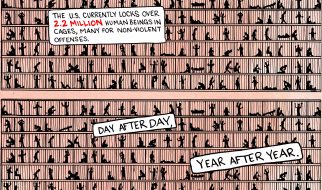
If memory serves: I don?t think I?ve blogged about music before. I keep saying that I?ll write a big ol? Kanye blog (or threatening to do so, depending on one?s point of view) but that?s essentially a huge assignment that?ll only be read by one person (hi, Kyle!) and summarily ignored or raised eyebrow emoji-ed by others. So instead I thought I?d talk, still at length of course, about a song that?s been stuck in my head for the better part of a year. It is a 9-minute trippy and story-infused smorgasbord of possible causal loops and reincarnation.
I had never heard of this song until it was covered as part of season 3 of Dissect (an excellent podcast that devotes entire seasons to singular albums by complex artists) but its themes and sounds instantly pulled me in. I began to listen to it every night as I fell asleep. The reason being: at a bit over 9 minutes it?s the perfect song for me to drift off during. A regular song isn?t long enough to take me away and if I put on an entire album I?ll usually wake up about halfway through. So as much as the song already had my attention: it?s now firmly embedded in my subconscious whether I want it there or not.
We?re essentially gonna tackle this thing chronologically, and I?ll call out specific lyrics since I?m sure many aren?t familiar with the song, so I guess I?ll get to it (before my cats, the real Pharaohs here, get any pushier about dinner). But first: an overview of my overall thoughts on the song.
?Pyramids? is ostensibly a song that appears to take place in two different time periods. There?s the initial half, which is about the Egyptian ruler Cleopatra, and the latter half which is about a modern day woman (likely a sex worker of some sort) working at the Vegas pyramid hotel. It?s a highly complex song that can be interpreted many ways and I highly encourage you to listen to the Dissect episode if you?d like a great rundown of the interpretation that plays more directly into Frank Ocean?s experiences/overall album. But like any layered piece of media: there?s no singular ?correct? read of it.
My read is essentially that the entire song is taking place in sort of a hyper-real dream state wherein a man is hiring a sex worker to relive the glory days of a past relationship (or has done so at some point). In that past relationship: he felt like a Pharaoh of old. So the first half of the song is a hyperbolic representation of his emotions and mental state during that time of his life. The descriptions in the present-day half of the song are much more vague and generic, which fits in well with the narrative.
With all that in mind: we?re off to the races.
?They have taken Cleopatra?
The song opens with bombastic and revelatory notes, as though something is becoming clear in the final act of a play. It makes me think of the sun rising to reveal a great structure (like a pyramid, natch) that was invisible a few moments earlier. The lyrics then come in with ?set the cheetahs on the loose.? This is essentially a period-specific way of giving a Mr. Burns-esque ?release the hounds!? The song is beginning in media res: Cleopatra is already gone. The character being portrayed by the singer is also some sort of ruler or Pharaoh. The thing is: there wasn?t really a co-ruler with Cleopatra (aside from her brother but?uhh?I hope this isn?t a Lannister Lament). Cleopatra is most likely a stand-in for someone else. Her beauty was renowned but she was also known for her power, intelligence, etc. She was, in many ways, the ultimate woman.
The singer presumes that Cleopatra has been stolen away by bandits. ?There?s a thief out on the move,? he says. The poor bastard. Early on: there are various references to Cleopatra?s station, the power and importance that she held, and not many to her actual person-hood. The singer states things like ?come back for my glory? and ?the throne of our Queen is empty.? He also mentions that she?s somehow been stolen away underneath the view of their entire legions. And, presumably, the cheetahs didn?t make a peep either (they do sleep 19 hours a day though). More than likely: Cleopatra has had one foot out of the palace for a long time and he has just chosen to ignore this.
What we can infer from these opening lines is that the storyteller is so startled by what was clearly an inside job (i.e. Cleopatra leaving him of her own volition) that the thought doesn?t even cross his mind that she might?ve just up and left. Much like when Don Draper says what he thinks is a temporary goodbye to Megan as the elevator doors close on Mad Men and they re-open to reveal: there?s no elevator. There?s just a void where she had been standing several seconds earlier. The storyteller immediately assumes that some villain has taken his Queen away and sends a WUPHF to his whole-ass army. But what was the nature of their relationship that it would cause such a response?
?We?ll run to the future, shining like diamonds in a rocky world?
The entire tone of the background music shifts as Verse 1 begins. Now it sounds more like club music. Much more modern, almost disco-y. It evokes not just a nightclub but a flashback. He?s remembering when he and Cleopatra first got together: the two shiniest rocks in a glib existence. He describes their skin as ?like bronze? and their hair as ?like cashmere.? On one hand, this is a poetic description of the classical interpretation of rich Egyptians (richyptians?) in that era: lotta makeup, maybe a fancy wig. Alternatively: these are somewhat inhuman descriptions. He?s discussing otherworldly beings, gods among men. When they were together they transcended their fellow beings and became like deities. Many long-term relationships are like this in the beginning: all bright futures full of fine promises. As he wonders where Cleopatra is and what she?s up to: he?s remembering the good times.
Then comes a very interesting bit: ?we march to the rhythm on the palace floor. Chandeliers inside the pyramids tremble from the force?voices fill up the halls.? I?m far from an expert on Egypt, most of what I know I learned from a video game where you spend most of your time shooting Roman centurions with magic arrows and much less time discussing architecture with noblemen, but this all seems very modern to me. And again: the music accompanying the lyrics certainly points to much more of a disco vibe. The description is befitting a wild party and passionate lovemaking. That could just be me remembering an episode of Smallville where Lana Lang also gets superpowers and some CW-appropriate Clark Kent canoodling becomes hilariously farm-shaking. However explicit or implicit you find the wording: it?s clear that he?s recounting the passionate era of his relationship with Cleopatra.
Then he returns to the initial ?set the cheetahs on the loose? line. This, when coupled with the way he sings ?voices fill up the halls,? makes me think that those memories have already become painful. He?s shocked back to the ?present,? or at least the present insofar as the song has presented itself so far, and now the line can be interpreted various ways. ?Voices fill up the halls? could evoke empty hallways, the loneliness of echoes pervading his once-alive home (and let?s not forget: a pyramid is a mausoleum). The voices could be Cleopatra and her new lover filling up the halls of the singer?s mind. Or maybe he?s really in denial about events that he himself overheard. Whatever is being evoked isn?t for us to know: we just know that the singer is done directly reminiscing.
?Bad dreams, Cleopatra?
Now that he?s back in the supposed Now, the singer proclaims: ?the jewel of Africa?what good is a jewel that ain?t still precious?? He?s confused, insisting that as a Queen: it?s not possible that Cleopatra could?ve been of any higher value. To him, she can?t be at her highest potential outside of her position in Egypt. Because of course the best and most valuable place for her to be is by his side. He?s projecting his own need for her to stay onto her life by insisting that he?s being selfless and simply wants her to be valued. There?s almost certainly a ring of truth to that, at least to him, but we?re starting to see why she left. It?s a lot of work being treated like a god when you?re flesh and blood.
Then the singer finally says an honest thing: ?how could you run off on me? How could you run off on us?? From his further description: the listener gets the impression that he needs her to help him feel like a god and not the other way around. Words and their order are important and he put ?me? before ?us.? Though ?us? in this instance is in reference to something they built together, it?s still largely being framed as his personal journey. Have you heard me mention anything specifically about Cleopatra yet? The song doesn?t say much about her. She might as well be a ghost: a being that no longer has any physical presence but left behind such an indelible mark that they never really leave. Even by the end of the song: we don?t know exactly how much time has passed since Cleopatra ran off on her ?kingdom? but nor do we ever see or hear from her.
The closest we get is the next line: ?I found you laying down with Samson and his full head of hair.? Samson was, of course, a Biblical antihero of sorts whose powers came from his hair. Did he wash, rinse, repeat with Roxxon radioactive 3-in-1? Who can say. The Bible likes to leave out little details like ?why bad things happen to good people? and ?what brand of toiletries the big boi used.? The singer is mixing his B.C. metaphors a lil bit but the meaning is clear: Cleopatra left him for someone with more physical prowess than he possesses. You can be the most powerful ruler in the known world but that won?t give you the self-confidence that a nice rack of abs will (I?m told). The real-life Cleopatra was no stranger to ?allying herself? with powerful men but most of them were powerful on paper and not necessarily in the?erm??hair? department. It speaks to the singer?s ego that he?d assume he was left for purely physical reasons and not because he describes his so-called Queen the same way he?d describe a statue of her. The final line of ?bad dreams, Cleopatra? is the first indication that maybe the singer isn?t experiencing these things quite as much in the moment as we?ve been led to believe. Perhaps they happened long ago. Additionally: the sentence structure of ?bad dreams, Cleopatra? makes one think that he?s actually talking to Cleopatra. We?ll get back to that in a bit.
?Send the Cheetahs to the tomb?
Now one wonders what he meant by ?cheetah.? Which sounds an awful lot like ?cheater.? The forward propulsion of the song has stopped. The singer is defeated. He has accepted the situation. Or at least acknowledged that the situation happened: ?our war is over, our Queen has met her doom?serpent in her room?he has killed Cleopatra.? The real Cleopatra was indeed killed by a serpent in her room. But I think the singer is using this as a metaphor to describe how the person he knew doesn?t exist anymore. He doesn?t actually say she died. He says ?she lives no more? and ?he has killed Cleopatra.? If we view Cleopatra as an icon or a title and not as just a person: it?s easy to draw the connection between a ?serpent? in her room being the cause of his loss of a Queen. If he?s sending the ?cheetahs? to the tomb then maybe the halls with the voices echoing was the storyteller?s mind after all. The whole thing is likely taking place inside the mind of the person relaying the events to us, so it fits as an interpretation to say that him sending them ?to the tomb? is almost like locking them in a vault inside his mind. Whether that?s the usual hyperbolic ?they?re dead to me? or simply the singer saying that he?s locked the memories of these events inside of his mind is debatable.
This is what makes the imagery of the pyramids so fascinating. One of them is a Wonder of the Ancient World and yet each of them were intended to house the dead. They?re big and beautiful and impressive but ultimately they?re empty. In perhaps my favorite Kanye song, ?Flashing Lights,? he describes his previous lover as being in his ?memory?s museum.? Something in a museum is so close?but you can?t interact with it. And to add to the theme: it?s a relic of a moment in time that?s long gone.
As these lyrics are imparted to us: it?s been a normal song?s length of about 4 1/2 minutes. To segue us from the first half to the second: we get some melancholy and disparate notes. Their tone reminds me of the ?tears in rain? music from the Blade Runner franchise and certainly slows the song down to a more trance-like and emotional state. The first half of the song has serious lyrics but as far as beats go: it?s a banger. The second half plays more like a tone poem. The story of Egypt?s Cleopatra might be full of hyperbole and metaphor but the singer recounts it as though it happened yesterday. The second half of the song is modern-day but feels like it happened much longer ago, as he?s having trouble grasping a Constant to ground him in reality.
?For now: let?s call her Cleopatra?
When lyrics start up again: the song brings us to the inside of a hotel room as the sun is coming up. This lends even more strength to the ?first half of the song is a dream? reading. The line ?for now: let?s call her Cleopatra? implies that whoever the singer is with: they?re a stand-in for who he really wants to be with. He then describes watching her get dressed in a way that I would describe as?peculiar. Not that the actual words being said are strange but more that he?s in a trance and the temporal placement of some of the phrasing is unusual.
For instance: he says ?I watch you fix your hair then put your panties on in the mirror, Cleopatra.? He says ?I watch? and not ?I?m watching.? He?s describing the situation either as something he?s narrating/reliving or as a ritual. As in: ?this is the part where you get dressed.? This has all happened before and it?ll all happen again. He keeps reiterating her name, which is a definite clue that it?s not her name. After the last time he says ?catch her? instead of her name and then goes into ?she?s headed to the pyramid.?
The entire Hook that follows consists of the singer, trance-like, repeating ?she?s working at the pyramid tonight.? Given how different his voice sounds from iteration to iteration, some times more synth-y than other times, it plays like he?s repeating this throughout the day and it?s not the first time. Whoever it is that he?s going to see (he mentions ?six inch heels? which is one of many indicators that they?re likely a sex worker): their reunion is all he?s thinking about during the day. Whether or not they?re a sex worker, their relationship clearly only happens when she?s at the pyramid. This is likely why he?s been dreaming about Egypt and whatnot. I doubt the singer even knows how much of the events described are fact, fiction, or in-between. He?s going through too many repeated motions and reliving the same events so much that he?s lost the thread of what?s happening now. The Westworld writers owe Frank Ocean some royalties.
?Floor model TV with the VCR?
Now is where the song starts to get a little tricky. This entire Verse essentially has the storyteller singing as though they?re the pimp for the so-called Cleopatra in question. I think that?s valid to take at face value! But I think this entire verse is a rundown of what this person thinks of as a high-roller. Almost to a childlike level. When describing the high life he talks about a VCR and a BMW station wagon with wood paneling. These are things a child in the 90s might?ve associated with someone resembling status.
Between the context of the ?high life? accoutrements and a line in the next Verse about being ?unemployed,? it makes me think that this whole description is part of the role-playing he?s set up for himself. If she?s working ?for him? then the only real relationship she has is with him and not her other clients. The rest of it is just collateral damage. He?s concocted an interpretation wherein a sex worker is really only interested in spending time with him so he must be the modern-day Pharaoh to her. At one point he says ?got your girl working for me? and it?s the only point in the verse where his voice becomes somewhat distorted. As though he accidentally dropped the facade for a brief instant. He?s going along with his own narrative by saying ?working for me? but because he said ?your? it plays much more as a transactional statement and not that he?s the one in control of the situation.
?The way you say my name?
The final verse of the song (aside from the third iteration of the ?working at the pyramid tonight? send-off of course) brings home the whole narrative for me. It?s why it took me so long to realize what my read on the song is: I?m usually asleep by the time this verse hits. He?s essentially describing their sexual encounter the way he described her getting dressed earlier: in the present tense but something is off. And when he says ?can we make love before you go? the song again becomes distorted and fades in on itself. Sometimes I also mishear it (or hear it?) as ?can we make love inside your Echo.? Either way: he?s said that a number of times: remembering one last intimate moment in the last days of Pompeii.
Then the storyteller drops the most interesting, and most over-analyzed by me, line in the song: ?the way you say my name makes me feel like I?m that ni**a but I?m still unemployed.? I go back and forth on how I interpret this lyric and it genuinely changes the entire song for me, depending. Going with our narrative thus far: he?s reliving his past relationship and remembering that when they got together he was unemployed but she made him feel like he was a Pharaoh. The other way you could interpret the line is: maybe ?that ni**a? is the sex worker?s pimp, i.e. her Pharaoh, which would make the storyteller Samson. Except in this instance: he?s rescuing her from the corrupt Pharaoh who didn?t appreciate her. But invoking the name of the king don?t make you King.
So?which is he? All we?re left with before the final fade-out is ?your love ain?t free no more.? What the cost of that love is: undecided. Is the singer the pimp or the customer? The way he fades in and out of the narrative could be viewed both ways. For instance: ?we?ll run to the future? could be him as ?the thief? giving Cleopatra reasons to run away from the Pharaoh. Perhaps the singer is someone who enticed a woman away from her husband/boyfriend only to have the same thing happen to him. Perhaps he?s caught in a causal loop of creating the very trauma that birthed the love that he experienced and then lost.
My thought: *Pam Beesley meme* they?re the same picture. I think whatever happened to this fellow wasn?t that dramatic but he?s viewing it through a very dramatic lens. I think he?s both the one who was left and the one who she left with. The whole ?run to the future? bit is the pure kinetic energy of when something is born and ?the Queen has met her doom? is after it?s all already over. The pyramid, the complex structure of many sides that builds to a singular point, is collapsing on itself. The man doesn?t know which part of the journey he?s on but he?s imagined it so much it feels more like a memory.
?The throne of our Queen is empty?
One thing I know for sure: the storyteller is only interested in his version of events, his experiences. Whether he?s the Pharaoh or the Thief: at some point he?s the victim and at some point he?s the bad guy. The sequence of events doesn?t actually matter that much because he?s missing the biggest point: it?s not about him. At no point does he consider what might be best for Cleopatra herself or even how she felt about the whole endeavor. He?s just wandering the halls of the elaborate mausoleum inside his mind: listening to the echoes of what was and what might?ve been. The throne of the Queen might be empty, but it?s in tact and a tomb is a strange place to search for its rightful heir.
So that?s the song ?Pyramids,? a 9-minute descent into madness that is kinetic as hell and oddly soothing for such a dark song. There?s a cyclical nature to the Egyptian myth of Ra: wherein he, as embodied by the sun, falls every day so that he may rise anew the next day. This song is itself cyclical and something of a time-loop wherein the singer is putting himself through the same events. A human being, it seems, has more free will than a god. Perhaps if the storyteller?s ego were lessened: he?d see that being ?inside that gold? pales in comparison to learning to march to the rhythm.


